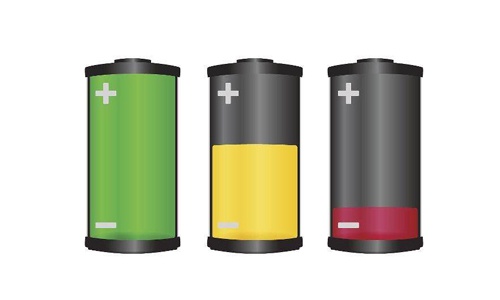Define Lithium Battery- Composition; Applications; Benefits
Oct 08, 2019 Pageview:1996
Batteries have been so omnipresent in our era that they may seem invisible to most of us. They are, however, a very extraordinary invention with a long and captivating history and an equally intoxicating future ahead of it. Lithium batteries stand apart from other cells due to their high energy density and low cost per cycle. Ever since the creation of these cells, they have greatly surpassed their nickel-based predecessors which were heavily flawed but still an appraised that era. There is currently much prolepsis that such battery technology will soon advance into more desirable models that can provide even better functionality.?
What are Lithium batteries?
A battery is typically an apparatus that stores chemical energy which can, after that, be converted into electricity for use. Today, batteries come in a range of many different sizes from the large Megawatt sizes used for commercial solar panels down to the tiny ones used in watches.?
Lithium batteries are therefore primary cells that contain metallic lithium as an anode and hence should not be confused with lithium-ion cells. The practical difference between the two is that unlike lithium-ion batteries, most lithium batteries are not rechargeable. They are however used to replace the dying lead-acid cells as they do not need an absorption charge or held in a consistent voltage state.?
Why use Lithium-ion batteries?
Lithium-ion batteries are prevalent these days and can be found in almost all devices and gadgets from laptops, iPods, cell phones to mobile phones. Their use and functionality all depend on the user's specifications and site for its utility. There are countless reasons why you should consider using a lithium-ion battery over any other type of cell. This is because, over the years, lithium-ion based batteries have proven to be exemplary in storing charges for more extended periods with fewer flaws than its predecessors. Some of the reasons for using lithium-ion batteries include:
Low self-discharge rate
One of the main issues with most rechargeable batteries, such as NiCad and NiMH types, is their high self-discharge rate. However, in the case of lithium-ion cells, once charged, they tend to retain their charge for a longer time. It usually revolves around 5% in the first 4 hours and later falls to about 2% per month.?
High energy density
This is one of the most significant benefits of using lithium-ion batteries over other types of cells. A high energy density battery is mainly required by devices such as mobile phones and laptops. This is because such gadgets need to operate longer between charges while still using a lot of power. The high energy density offered in lithium-ion batteries is an extreme advantage for immense power-consuming tools and electric vehicles.?
No priming requirements
While some rechargeable batteries need to be primed when they receive their first charge, lithium-ion cells do not need this specification. One regular charge is all that is necessary.?
Low maintenance rate
Lithium batteries do not require a high maintenance rate to ensure their smooth performance. This is because the cells are not affected by the "memory effect" as was common in its predecessors which made them in need of periodic discharges.?
A variety of lithium-ion cells are available.
There are many types of lithium-ion cells available which makes it easier for the right technology to be used in the most preferred application required. Different forms of lithium-ion density avail a variety of current densities with the highest ones used in electric vehicles and power tools.?
They are light
Lithium-ion cells are generally much lighter than other forms of rechargeable batteries because its electrodes are made of lightweight lithium and carbon. Such a quality enables the batteries to be very portable, especially in the case of power banks.
What is lithium battery made of?
As the name suggests, lithium batteries consist of mostly lithium. The ions found in the cells can be arranged to migrate between the anode and cathode. The cathode uses an intercalated lithium compound to facilitate this movement of ions without using lithium-based metal as the anode. The lithium in these batteries is a reactive compound as it can instantly react with any liquid such as water or even moisture in the air. The cells require 0.15 to 0.3kg of lithium per kWh.
Lithium is among the lightest elements found on the periodic table and thus possesses a massive electrochemical ability. This combination of qualities produces high voltages but in small and controllable volumes.?
Applications of lithium batteries
Lithium batteries can mostly be applied in most long-lasting devices. Appliances such as pacemakers used a specialized lithium iodide battery that is meant to last as long as over ten years because of its critical use in the medical field. For devices of less significant value such as toys, the lithium battery tends to outlast the machine. This, therefore, makes an expensive cell less cost-effective as one would hope when used on such a toy.?
These batteries may also be used to replace alkaline-based cells in devices such as digital cameras and clocks. They may be more costly than the alkaline ones but tend to last longer and therefore reduce the need for periodic replacement of the batteries. Lithium cells have been noted to develop a higher voltage than zinc cells, and thus, caution needs to be taken when using them as a replacement for the latter.?
Lithium batteries may also be used to power miscellaneous devices such as thermometers, hearing aids, laser pointers, remote car locks, Mp3 players, and calculators.?
Final thoughts
Lithium batteries are a big step out of the previous cell types and have been around for a long time providing sufficient battery support for many devices. However, with the changing times in this current generation, and the continually evolving technology, new inventions are expected to emerge. It won't come as a surprise when we soon notice a significant shift in battery technology and energy generation devices. The battery may quickly run out of business as a much more advanced technology may come into being. All in all, battery technology has evolved for centuries, and improvements are still ongoing to make them more environmentally friendly.
- Prev Article: 2 Cell LiPo Charger-Charging Hour
- Next Article: Lithium Batteries Explode in the Sun- Attention Tips
Leave Message
Hottest Categories
-
Hottest Industry News
-
Latest Industry News











